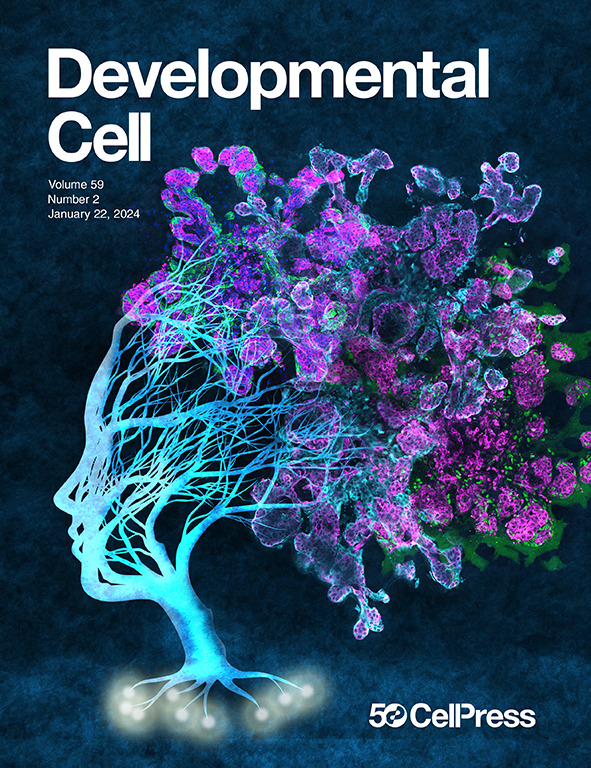Piezo-dependent surveillance of matrix stiffness generates transient cells that repair the basement membrane
IF 10.7
1区 生物学
Q1 CELL BIOLOGY
引用次数: 0
Abstract
Basement membranes are extracellular matrix sheets separating tissue layers and providing mechanical support, and collagen IV (Col4) is their most abundant structural protein. Although basement membranes are repaired after damage, little is known about repair, including whether and how damage is detected, what cells repair the damage, and how repair is controlled to avoid fibrosis. Using the intestinal basement membrane of adult Drosophila as a model, we show that after basement membrane damage, there is a sharp increase in enteroblasts transiently expressing Col4, termed “matrix mender” cells. Enteroblast-derived Col4 is specifically required for matrix repair. The increase in matrix mender cells requires the mechanosensitive ion channel Piezo, expressed in intestinal stem cells. Matrix menders are induced by the loss of matrix stiffness, as specifically inhibiting Col4 crosslinking is sufficient for Piezo-dependent induction of matrix mender cells. Our data suggest that epithelial stem cells control basement membrane integrity by monitoring stiffness.

求助全文
约1分钟内获得全文
求助全文
来源期刊

Developmental cell
生物-发育生物学
CiteScore
18.90
自引率
1.70%
发文量
203
审稿时长
3-6 weeks
期刊介绍:
Developmental Cell, established in 2001, is a comprehensive journal that explores a wide range of topics in cell and developmental biology. Our publication encompasses work across various disciplines within biology, with a particular emphasis on investigating the intersections between cell biology, developmental biology, and other related fields. Our primary objective is to present research conducted through a cell biological perspective, addressing the essential mechanisms governing cell function, cellular interactions, and responses to the environment. Moreover, we focus on understanding the collective behavior of cells, culminating in the formation of tissues, organs, and whole organisms, while also investigating the consequences of any malfunctions in these intricate processes.
 求助内容:
求助内容: 应助结果提醒方式:
应助结果提醒方式:


